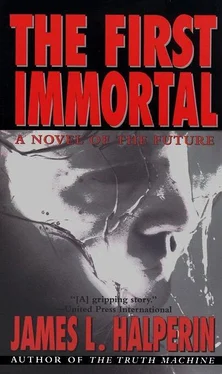Where in the hell was Sam?
Even in anguish, Alice understood this rage against her husband was misplaced. It had somehow become a societal expectation that women should bear children with stoic grace. And it was absurd. A student of history, she knew that anesthetics had been used for many surgeries since the 1850s, yet had found little acceptance in obstetrics, the pain of childbirth considered by doctors to be a duty women were somehow meant to endure.
Still, it could have been worse; Alice was equally aware that her odds had improved. A hundred years earlier, doctors would often go straight from performing autopsies to delivering babies, seldom even washing their hands. No wonder it had been common back then for men to lose several wives to complications of childbirth. At least now, sterilization was practiced with some modicum of care.
Her nineteen-year-old sister, Charlotte, and the midwife stood at Alice’s bedside. The older woman’s facial expression evinced kindly resignation, as if to say, It’s all we can do for you, dear , as she held a wet towel, sponging Alice’s forehead. Charlotte Franklin’s intelligent eyes and sanguine aspect seemed to magnify the midwife’s aura of incompetence.
“Just breathe through it,” said the midwife, who’d already told them that the suffering and peril of delivery were “natural,” God’s punishment for the sins of womankind. “It’s in our Lord’s hands now,” she added, as if these words held some sort of reassurance.
Alice felt her mind shove aside the hopeless bromide.
“You’ll be okay, Alice,” Charlotte whispered nervously, gently massaging her sister’s shoulders. “You’re doing fine.”
“Quick now, fetch the boiling water for the gloves,” the midwife ordered. “Won’t be much longer.”
Alice screamed again, and Sam burst into the room. The snowstorm dripped its offerings from his clothes onto the stained wooden floor. He shivered.
Thank God, Alice thought, her rage forgotten. Sam would see their child be born.
“Am I in time?” he asked stupidly.
His question went unanswered. “Head’s about through. Now push, girl!” the midwife shouted.
Alice pressed down. Slowly, painstakingly, Charlotte and the midwife managed to extract a perfect baby boy.
Though bleeding heavily, Alice rallied a wan smile of optimism and hope, qualities she intended to convey to her son, assuming she survived.
Charlotte cut the cord. The midwife spanked the infant’s bottom. They washed him with warm water. He wailed, but soon rested contentedly in his mother’s arms. His father gently stroked his back. The caresses, tentative at first, easily progressed in loving confidence.
“Benjamin Franklin Smith,” Sam declared, as if in the ritual of naming, his wife’s pain might be banished to memory.
The next few days would be difficult. Having barely survived the ordeal, Alice sustained a dangerous postpartum infection of the uterus and tubes. Her fever would reach 105 degrees, often consigning her to the mad hands of delirium. She’d live through the illness, but not without loss: She would never bear another child.
August 15, 1929
Oh! Ah! The next flash card displayed a tug wearing an impish grin and belching smoke from its only funnel. As Ben saw it, he felt his cheeks puff into a smile. His first impulse was to reach for the drawing; get a good close look at the happy work boat. But doing that would be bad. Might ruin the game.
B-O-A-T, yes, yes, yes! He could see the letters forming in his mind’s eye and was delighted. The mental picture of the vessel and the alphabetic characters defining it jumped from his cerebrum into his eyes and mouth.
“Boat! B-O-A-T, boat!”
“Wonderful.” Alice grinned. Oh, he’s so special, she thought, even knowing that her excitement was exponentially enhanced because this delightful four-year-old was her own. Although they said John Stuart Mill could translate Cicero at this age…
She showed him the next card.
“Train,” he said, but did not attempt the spelling.
“I’m so proud of you!” she exclaimed, turning the card over. “That’s eighteen in a row. And you spelled half of them. Enough for today?”
“Just a few more, Mommy. Please?” Ben loved this time with his mother. Everything he said seemed to please her so.
“As many as you want, sweetheart.”
They still occupied the same tiny Wakefield apartment where Ben had been born, but much of the furniture was new. Colorful drapes now hung at their only window. Several Maxfield Parrish prints adorned the walls. Some new floor lamps were there to provide their place a bright, almost cheerful atmosphere. Sam’s career had begun to advance; he was now manager of the modest neighborhood grocery.
And like so many of his neighbors, he’d made a little money in the stock market.
It was almost seven P.M. Sam walked through the door, after another fourteen-hour day. He hid it well. Or perhaps seeing the two people he loved most in the world simply energized him; they were still sitting at the table, playing an addition and subtraction game Alice had invented for their boy.
He kissed Alice on her cheek. She returned his kisses on the mouth. Ben dashed to his father and hugged him. “Daddy, I missed you.”
“Missed you, too, buddy boy. Wanna go outside and play some ball?”
“Yeah!” Ben said excitedly, and raced in search of his mitt and ball. At his age he could barely throw the softball and had yet to catch it from more than five feet away, but he loved playing with his dad.
“Stock market went up again,” Sam said to Alice. “Few more runs like today’s and we can move out of here.”
“I’m perfectly happy where we are,” she said. “Long as I have my men.” She kissed Sam again. “Don’t you think it’s getting awfully high? Can’t go up forever.”
“ Feels like it will. All my friends think so, too.”
“Sam,” Alice said in a voice that implied I’m just a woman , yet somehow commanded full attention, “have you ever seen a lightbulb just before it burns out?”
As Ben and Sam left the apartment, Sam shook his head and smiled in bemused amazement. He knew that this discussion with his very prudent wife was far from over, and the outcome inevitable: Tomorrow he would be selling their stocks.
Almost every evening after dinner, Charlotte Franklin would drop by to keep Alice company while Sam updated his inventory register in the kitchen. As usual, little Ben snuggled under his soft bed sheet, listening to their conversation in covert, fascinated silence.
“Mom’s just beside herself,” Charlotte whispered, “that I’m twenty-three and still not married.”
“She told you that?”
“Not in so many words. Just another of her you-never-know-how-things’ll-turn-out discourses. She, of course, always figured I’d have a brood by now, and you’d be the spinster schoolmarm.”
“So did I,” Alice laughed, “till I met Sam.”
“That’s what I told Mom: ‘Soon as I find a man like Sam Smith.’ Then she starts whimpering a little, y’know how she does it, and suddenly she’s talking about that winter… Lord, it’s been… ten years… when Sophie fell through the ice. Like maybe I’m s’posed to give her some grandchildren to replace our sister or something…”
“I’m sure that’s not how she meant it. And even if she did, Charlotte, it’s a longing, not a wish. They’re not the same, you know.”
“Maybe, but I shouldn’t feel like I’m letting them down, should I? I mean, it’s my life. And it wasn’t my fault about—”
“Not at all,” Alice interrupted. “Not the least bit your fault. Goodness, Charlotte, you were thirteen; she was seventeen. How were you supposed to talk her out of anything? I’m just thankful you didn’t go skating with her. Might’ve been both of you they’d had to fish from that pond.”
Читать дальше












